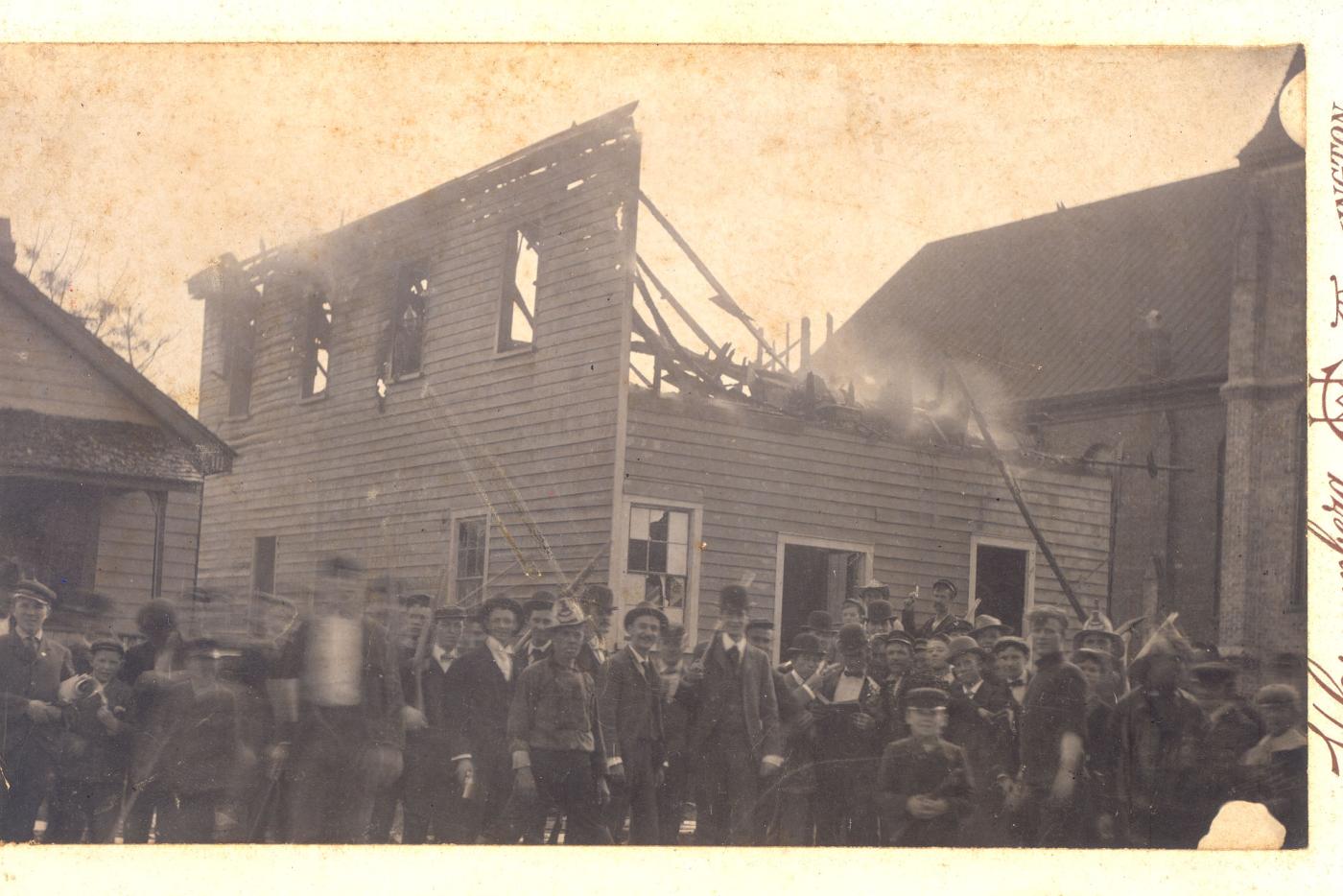In the port city of Wilmington, the “Daily Record,” a black-owned newspaper, was burned by an angry white mob Nov. 10, 1898. Editor Alex Manley had written an editorial that incensed white men and led to the attack on the publication and violence that left an untold number of African Americans dead. The event marked the climax of a white supremacy campaign of 1898 and a turning point in the state’s history that led to Jim Crow segregation.
A N.C. Highway Historical Marker will be dedicated to commemorate those events Friday, Nov. 8, at noon on Market Street between Fourth and Fifth Streets in front of the old armory in Wilmington. A reception at First Baptist Church will follow the marker dedication.
Wilmington in 1898 was governed by a coalition of Populists and Republicans whose removal was called for prior to the next election by Alfred Moore Waddell, a former Confederate officer and U.S. Congressman. Manley’s editorial provided an issue to inflame Democrats as election day approached. About 500 men gathered at the armory of the Wilmington Light Infantry on Nov. 10 and Waddell took on the task of leading them to the “Daily Record” office. The crowd swelled to perhaps 2,000 as they moved toward the office.
Manley and numerous blacks had fled the city in anticipation of violence. The mob invaded the newspaper office, a fire broke out and the top floor was consumed. Violence spread to other parts of the city. The white Republican mayor resigned under pressure, as did the city council and other officers. Waddell then took the office of mayor in what is considered the country’s first successful coup d’état.
An attorney and advisor to the group served in the state legislature and in 1899 drafted the so-called “Grandfather Clause” providing that male citizens could vote if they could read and write, or if their grandfathers had voted, thereby denying most blacks the franchise.
The Wilmington coup has been widely written about and some details are still under question. In 2010 the General Assembly authorized the creation of a commission to study the event and its impact.
For information on the Highway Historical Marker Program, call (919) 814-6620. The Highway Historical Marker Program is a collaboration between the N.C. Departments of Natural and Cultural Resources and Transportation.

